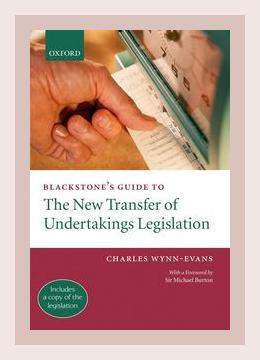Business Law and EthicsEmployment Law
**
Introduction
Guide to Employment Law: Rights for Employees by Charles Wynn-Evans is a comprehensive resource aimed at both employees and employers aiming to understand and navigate the complicated landscape of employment law. By exploring various aspects from hiring to termination, the book equips readers with the necessary tools to handle employment matters legally and ethically.
1. Hiring Process and Employment Contracts
Wynn-Evans starts with the foundational elements of employment law: the hiring process and employment contracts. He emphasizes the importance of clear, written contracts to avoid future disputes.
Key Points:
Fair Recruitment Practices: Wynn-Evans advises that employers must adhere to non-discriminatory hiring practices. For example, job advertisements should avoid specifying gender, age, or race unless absolutely necessary for the role.
Actionable Advice:
– Applicants should ask for a copy of the company’s equal opportunities policy if there are concerns about discriminatory practices during recruitment.
Written Contracts: He stresses that all employment terms should be detailed in written contracts, including job responsibilities, pay, work hours, and termination conditions.
Actionable Advice:
– Employees should request a written contract before starting work and ensure all verbally agreed terms are included in writing.
2. Employee Rights and Benefits
One major section of the book covers the rights and benefits entitled to employees.
Key Points:
Minimum Wage: Wynn-Evans outlines the statutory national minimum wage, noting that employers are legally obligated to pay employees at least this amount.
Actionable Advice:
– Employees should regularly check their pay slips to ensure they are receiving at least the minimum wage. If discrepancies arise, raise the issue with the HR department or seek legal counsel.
Working Time Regulations: Employees are entitled to certain working time regulations, including breaks, daily and weekly rest periods, and holiday entitlements.
Actionable Advice:
– Employees should log their work hours and rest breaks to ensure compliance with working time regulations. If they notice any violations, they should report these to their employer or escalate the issue to a regulatory body if needed.
Family and Medical Leave: Wynn-Evans details various types of leave, such as maternity, paternity, and sick leave, along with the processes to request them.
Actionable Advice:
– Employees should familiarize themselves with the company’s leave policies and document all requests in writing to ensure proper processing and record-keeping.
3. Workplace Health and Safety
Health and safety are crucial components covered by Wynn-Evans in employment law.
Key Points:
Employer Responsibilities: Employers have a duty to provide a safe working environment, including necessary training and equipment.
Actionable Advice:
– Employees should report unsafe conditions immediately and can reference the Health and Safety at Work Act to back their claims. Regular training sessions should be attended, and any lapses reported.
Workplace Stress: He also considers employer obligations regarding the mental well-being of their staff, highlighting stress as a significant issue.
Actionable Advice:
– Employees who experience workplace stress should document instances and discuss them with a manager or HR. They can also request adjustments or support as needed.
4. Discrimination and Harassment
A substantial focus of Wynn-Evans’ guide is on prohibiting workplace discrimination and harassment.
Key Points:
Protected Characteristics: Discrimination based on age, disability, gender reassignment, marital status, race, religion, sex, and sexual orientation is illegal.
Actionable Advice:
– Employees should maintain records of any discriminatory incidences and seek advice from workplace representatives or legal advisors if necessary. Freedom to submit formal grievances should be exercised if informal resolutions are ineffective.
Harassment Policies: Employers must have clear policies to prevent and address harassment.
Actionable Advice:
– Request a copy of the employer’s anti-harassment policy and know the steps for filing complaints. Utilize internal grievance mechanisms or external bodies like ACAS (Advisory, Conciliation and Arbitration Service) if internal options fail.
5. Termination of Employment
Termination procedures are another critical chapter that Wynn-Evans details with precision.
Key Points:
Unfair Dismissal: The book explains what constitutes unfair dismissal and the recourse available to employees.
Actionable Advice:
– Employees should seek clarification on the reasons for termination and ensure that they receive this in writing. Consulting with employment tribunals or unions can provide avenues for challenging unfair dismissals.
Redundancy Processes: Legitimate redundancy processes must be transparent and involve proper consultations.
Actionable Advice:
– Employees should ask for the redundancy policy in writing and request all related consultations and documentation for review.
6. Resolving Disputes
Wynn-Evans offers practical guidance on ways to resolve employment disputes amicably.
Key Points:
Mediation and Arbitration: These alternative dispute resolution methods are less adversarial and often quicker than formal legal processes.
Actionable Advice:
– Employees should ask their employer about mediation services before proceeding to litigation. Prepare for mediation by compiling all relevant documents and evidence to present a clear case.
Employment Tribunal: As a last resort, employees can bring their cases to an employment tribunal.
Actionable Advice:
– Prior to filing a claim, consult with a legal professional to assess the strength of the case. Complete all necessary pre-claim conciliation with ACAS.
Conclusion
Charles Wynn-Evans’ Guide to Employment Law: Rights for Employees is a thorough, accessible resource that empowers both employees and employers with essential knowledge and practical advice. From understanding the importance of written contracts to navigating the complexities of discrimination, health and safety, and dispute resolution, the book provides a well-rounded toolkit for ensuring fairness and legal compliance in the workplace. Each chapter equips readers with clear, actionable steps to take when confronted with various employment issues, making it an invaluable resource for anyone involved in or affected by employment law.
